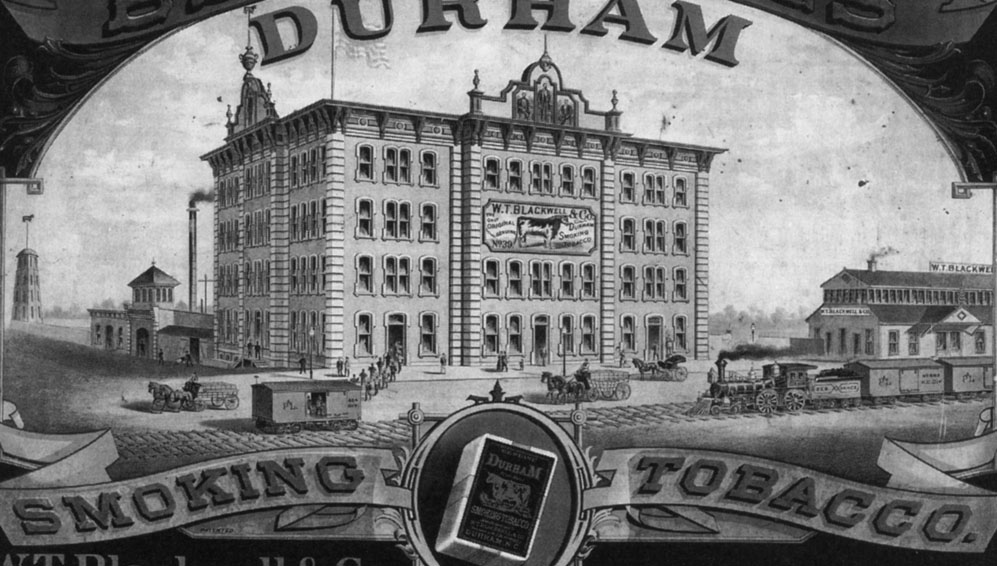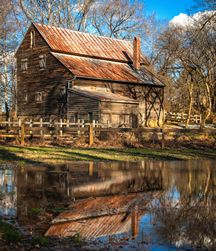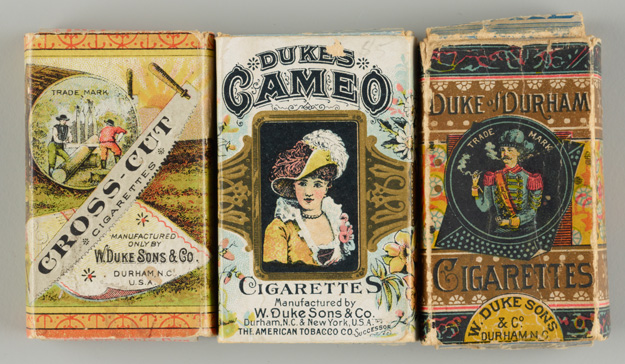The Colonial Trail into Durham
During Colonial days, the English, Scots and Irish settled along the waterways of the present Northeast corner of the county on land given to the Earl of Granville by the British Crown. As a result of the hard work of those early settlers, the area soon became a progressive and prosperous section of the State. The City of Durham was named after Dr. Bartlett Durham and became established as a railroad station settlement town. While the official birthdate is April 26, 1853 when the U. S. Post Office was established, the town was not incorporated until April 10, 1869. In 1881, Durham officials sought to become an autonomous political subdivision and decided to separate from Orange County. Durham County was formed on April 17, 1881 from portions of land transferred into the county from Wake and Orange counties. In 1911, an additional portion of land was transferred into the county from Wake County.
The Bull Durham Brand of Cigarettes

Names of Families in Durham County Genealogy Records

Records available to Members
- List of Wills 1881 to 1996
- Map of Durham
The Tobacco Business in Durham
